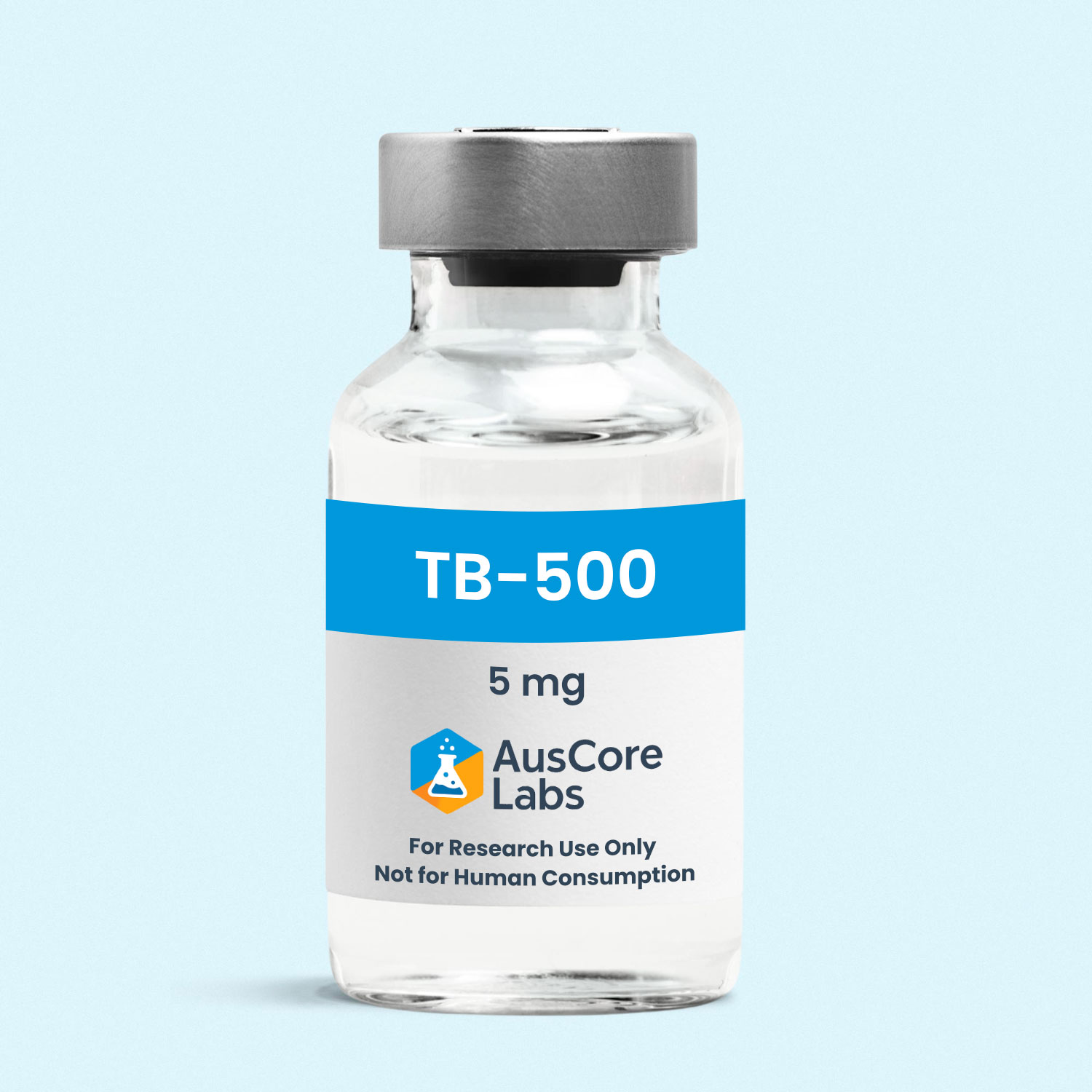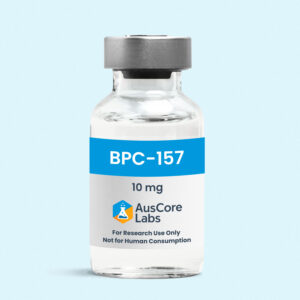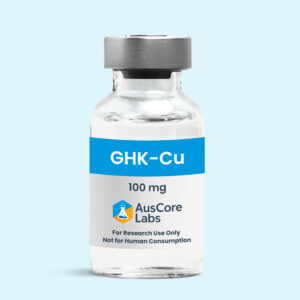TB-500 – 5mg
TB-500 – 5mg
$60.00
For Research Use Only – Not for Human Consumption
-
Quantity: 10mg per vial (or adjust as needed)
-
Purity: ≥99%
-
Form: Lyophilized powder
-
CAS Number: [Insert if available]
-
Storage: Store at -20°C for long-term stability
TB-500 is the synthetic version of a naturally occurring peptide in the body known as Thymosin Beta-4 (Tβ4). Widely studied for its role in cellular regeneration and healing, TB-500 has gained attention in scientific research for its ability to enhance tissue recovery, reduce inflammation, and promote wound repair.
In laboratory settings, TB-500 has been shown to stimulate angiogenesis, facilitate muscle and tendon regeneration, and modulate inflammation. Because of its versatility and powerful biological properties, it is frequently used in research related to soft tissue repair, cardiovascular injury models, and autoimmune conditions.
This product is strictly intended for research purposes only and is not for human use or consumption under any circumstances.
What is TB-500?
TB-500 is a synthetic peptide modeled after Thymosin Beta-4, which is found in high concentrations in wound fluid and plays a central role in tissue healing and cell migration. It consists of 43 amino acids and is believed to regulate actin polymerization, a key component in cellular movement and structure.
Due to its small molecular structure and ability to diffuse easily through tissues, TB-500 demonstrates effects throughout the body, even when administered in a localized setting during animal research.
The peptide is often reconstituted using bacteriostatic water and administered in laboratory experiments to assess its effects on regeneration, inflammation, and healing processes.
Potential Research Benefits of TB-500:
The following data is derived from preclinical animal studies and theoretical models.
1. Enhanced Muscle Recovery:
TB-500 is frequently studied in muscle trauma and damage models. It has been shown to increase muscle cell differentiation and migration, helping with regeneration of damaged fibers and reducing inflammation.
• A rodent study published in Peptides (2007) showed improved muscle fiber regeneration and angiogenesis following administration of Tβ4 analogs.
2. Accelerated Healing of Tendons and Ligaments:
In vivo animal experiments demonstrate that TB-500 supports recovery in tendonitis and ligament damage models. Researchers have observed improved flexibility, reduced inflammation, and enhanced recovery timelines.
3. Cardiovascular Tissue Repair:
One of the most intriguing applications of TB-500 is in research related to cardiac tissue injury. In rodent models of myocardial infarction (heart attack), TB-500 has been shown to stimulate new blood vessel formation and reduce scarring in heart tissue.
• A Nature study (2010) found that Tβ4 significantly improved heart function and regeneration following induced heart damage in mice.
4. Anti-Inflammatory Properties:
TB-500 appears to modulate pro-inflammatory cytokines and reduce inflammation in injured tissues. This makes it particularly interesting for research into autoimmune and chronic inflammatory disorders, such as arthritis and colitis.
5. Neurological Protection and Nerve Healing:
Emerging research has explored TB-500’s role in neuroprotection and nerve recovery, including studies involving spinal cord injury and peripheral nerve damage.
• Research in Journal of Neuroscience Research highlighted that TB-500 may improve neuron regeneration through its influence on cellular scaffolding proteins.
6. Skin and Corneal Healing:
TB-500 has shown promise in wound healing and corneal regeneration, with accelerated epithelial cell migration and reduced scarring in mice.
7. Hair Growth Research:
Though still early, some experimental data suggests TB-500 may influence hair follicle development and possibly support hair regrowth due to its regenerative properties in dermal tissues.
Scientific Literature Highlights
• Philp et al., 2003 (PNAS): Demonstrated that Tβ4 promoted keratinocyte migration and wound closure in dermal wound models.
• Smart et al., 2007 (Circulation Research): Found that Tβ4 protected cardiomyocytes post-myocardial infarction and aided in heart tissue regeneration.
• Huff et al., 2011: TB-500 facilitated tendon repair in horse models, showing rapid recovery and reduced fibrosis.
How TB-500 Works in Research Models:
TB-500 binds to G-actin (globular actin) and regulates actin polymerization. Actin is crucial for cellular movement, shape, and signaling. By facilitating cell migration, TB-500 enhances tissue remodeling and repair.
Additionally, TB-500 is believed to upregulate VEGF (vascular endothelial growth factor) and other signaling molecules involved in angiogenesis and tissue regeneration.
Its ability to reduce oxidative stress, inhibit apoptosis (programmed cell death), and modulate inflammatory response makes it a valuable compound in chronic injury and degenerative disease models.
Common Experimental Uses:
• Muscle injury models (acute trauma, microtears)
• Tendonitis and joint damage
• Cardiac ischemia and post-infarct remodeling
• Skin wound healing assays
• Spinal cord or peripheral nerve regeneration
• Chronic inflammatory disease models
• Corneal injury recovery research
Reconstitution & Storage
• Reconstitution: Mix 1mL–2mL of bacteriostatic water per vial to achieve a 2.5–5mg/mL solution.
• Storage: Lyophilized powder should be stored in a refrigerator (2–8°C). Once reconstituted, use within 30 days for optimal peptide stability.
• Handling: Always use sterile practices and properly label all research solutions.
Side Effects (Observed in Animal Studies):
TB-500 exhibits a very high safety profile in preclinical testing. No significant side effects were observed in multiple animal trials. Some studies note:
• Localized irritation at injection site (in rodent models)
• Potential temporary fatigue due to cellular turnover and tissue remodeling
• No signs of toxicity or organ burden at standard dosing ranges
Legal & Safety Statement:
This product is intended only for laboratory research purposes and is not for human or veterinary use. It has not been evaluated by the TGA, FDA, or any other health authority. The buyer assumes all responsibility for proper use, storage, and disposal.




Reviews
There are no reviews yet.